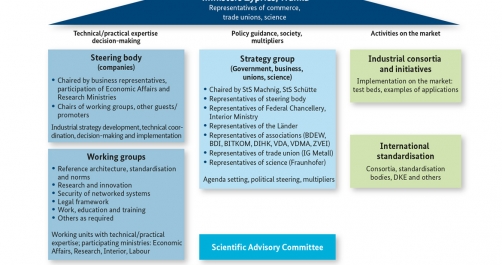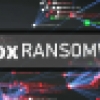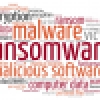The background to Plattform Industrie 4.0
The background to Plattform Industrie 4
How can Germany become the leading factory equipment supplier for Industrie 4.0? How can Germany further improve its competitiveness as a production location through Industrie 4.0? What role can Germany play in setting standards and how can Industrie 4.0 benefit people in the world of work? Plattform Industrie 4.0 aims to find answers to these questions through dialogue. Together, companies and their employees, trade unions, associations, science and politics want to make a big impact. Ambitious but achievable recommendations are to be drawn up for all stakeholders, including the initiation of appropriate standards. In addition, a coherent research agenda based on the needs of operators is to be developed. Finally, compelling practical examples should be identified that demonstrate the various effects of networked production and value networks and the benefits of new business and working models.
How the platform sees itself
The platform aims to develop joint recommendations for all stakeholders, that serve as the basis for a consistent and reliable framework. The platform will initiate alliances and networks at the precompetitive stage which support the evolution of the entrepreneurial skills and energy present in Germany. The platform aims to identify all relevant trends and developments in the manufacturing sector and to combine them to produce a common overall understanding of Industrie 4.0. This means conversely that the platform does not operationally realise activities in the market, such as demonstration centres, research projects or company-led projects, however it does proactively initiate and support them. Equally, in the area of standardisation, the platform is not where the standards will be set in terms of committee work. However, the platform should indeed identify where action is required on standards and norms and should actively express recommendations for national and international committee work.
The structure of the platform
The platform is steered and led by the federal minister for economic affairs and energy, Brigitte Zypries, the federal minister of education and research, Prof. Johanna Wanka, and high-ranking representatives from industry, science and the trade unions. Experts from business, science, associations and the trade unions develop operational solutions together with representatives from various federal ministries in thematic working groups.
The groups look at future-related issues in the areas of standardisation and norms, security of networked systems, legal frameworks, research, and working arrangements. The steering committee, which includes business representatives, develops a strategy for the technical implementation of the working groups’ findings. The strategy group, which includes representatives from politics, industry associations, science, trade unions, federal government departments and the federal states, is tasked with providing policy leadership and multiplication effects in the sociopolitical debate on the effects of Industrie 4.0.
The composition of the platform’s management team and an overview of the companies and organisations represented on the platform can be found here (PDF, 125KB).
The history of the platform Industrie 4.0Industrie 4.0 is one of the future projects adopted in the „Action Plan High-tech strategy 2020“. The Federal Government thereby adressed the rapid social and technological development in this area and put structures for cooperation between all actors of innovation in Germany. The working group Industrie 4.0 set up by the Research Union Economy - Science of the BMBF shed a light on the requirements for a successful start into the fourth industrial age. In October 2012, the working group handed over its report entitled "Implementation of recommendations for the future project Industrie 4.0". The associations BITKOM, VDMA and ZVEI - they account for more than 6,000 member companies – acted on the suggestion of a continuation and further development of the project Industrie 4.0 and in April 2013 concluded a cooperation agreement to run – in the form of an ideal thematic cooperation beyond association boundaries – the Plattform Industrie 4.0. The launch of the platform was officially announced at the Hanover Fair 2013. In April 2015, the Plattform Industrie 4.0 was expanded - more actors from companies, associations, unions, science and politics were added. |
The platform’s working groups
The platform’s technical work is carried out in thematic working groups. The working groups develop and document precompetitive concepts on selected topics and specific recommendations for action that, when implemented, should ensure a competi-tive advantage for all partners in Germany.
Working group on reference architectures, standards and norms
A consensus-based, research-accompanying standardisation process is essential for the rapid realisation of more highly digitised industrial manufacturing processes.
One of the platform’s major tasks is to incorporate existing norms and standards in RAMI 4.0 (Reference Architecture Model Industrie 4.0). RAMI 4.0 is an initial proposal for a solution-neutral reference architecture model. It will first be necessary to gain a structured overview of the existing methods and approaches. Overlaps and gaps in existing standards and norms should then be identified and recommendations drawn up for preferred solutions. The working group will pay special attention to minimising the number of standards to be employed.
The Industrie 4.0-relevant standards and norms are negotiated and developed at various technical levels and by different bodies. The platform will therefore take up the coordination of Industrie 4.0 standardisation activities in numerous sub-committees and ensure consistent and concerted action across a range of organisations and associations. The platform is the contact and dialogue partner for all stakeholders that want to define Industrie 4.0 compatibilities. Agreements and proposals on such definitions are communicated by the platform in a broad and transparent manner.
Companies from any sector can participate. Many are already actively involved in the platform’s work. These companies will benefit in the future if their machines, storage systems, products, employees, suppliers, partner companies and customers are networked and able to exchange information in accordance with uniform standards.
Working group on research and innovation
The working group on research and innovation evaluates current case studies to identify research and innovation requirements from the industry perspective. The group also updates the Industrie 4.0 research and innovation roadmap. Together with the platform’s other working groups, the group identifies the research necessary to advance Industrie 4.0 in Germany. The group presents its findings on necessary innovation and research to, inter alia, the national funding bodies. The results are presented as scientific recommendations for implementation, for example, models for future research programs.
At the same time it is important that companies receive research findings in order to drive innovation. Particular attention is paid to SMEs, which are supported by targeted transfer strategies to employ Industrie 4.0 in their factories. Concrete applications are analysed and evaluated in terms of their innovativeness.
Working group on the security of networked systems
The working group on the security of networked systems will help resolve the outstanding issues concerning secure communication and secure identities of value chain partners. It will also address the detection of cyber attacks on production processes and their implications. Both of these approaches should help facilitate the necessary confidence between value chain partners. The working group will also provide SMEs in particular with a quick-start guide for the introduction of “Industrie 4.0 security” to enable the widespread introduction of Industrie 4.0 and its full benefits. In addition, the working group will define the new knowledge and experience required of employees in relation to Industrie 4.0 security issues and will deliver its findings to the technical working group. Competent users and managers are needed to ensure that the security concepts and methods that are developed can be applied consistently.
Working group on the legal framework
The Plattform Industrie 4.0 working group on the legal framework has the objective of evaluating the opportunities and risks presented by Industrie 4.0 in legal terms. The working group functions as an “enabler” to support the development and implementation of new standards and business models. It also highlights where legislative action is needed. This primary issue is how the present law, which essentially addresses human-controlled behaviour, needs to be adapted to cover machine-controlled communication.
Working group on work, education and training
The transition to a networked industry will only succeed in Germany if the relevant actors are involved in the process of change from the outset. Plattform Industrie 4.0 follows this principle and brings together a circle of people who will take up these issues in a dedicated working group.
The working group on work, education and training has defined three closely interrelated fields for its endeavours:
- In networked information and production spaces, human-machine interfaces and cooperation must be designed to serve the interests of the people involved and the innovative capacity of enterprises.
- The organisational frameworks for coalescing value networks must be designed to facilitate working and learning within the processes.
- Training and qualification programmes in hybrid fields must be designed to accommodate operational skills development, processoriented learning and new forms of learning.













